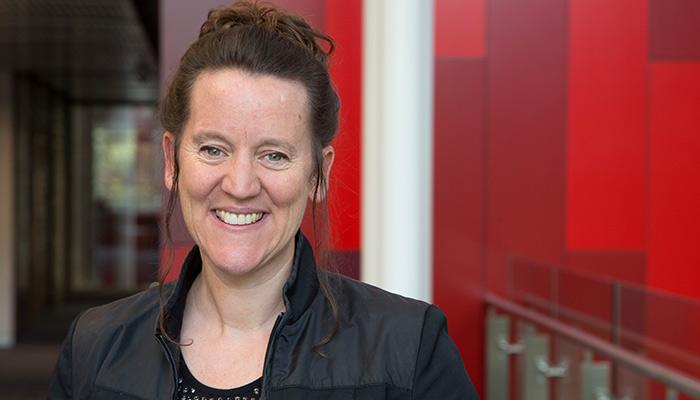As Australia’s most extensive bushfire crisis continues and areas across the country remain at risk, the mental health fallout is becoming more apparent.
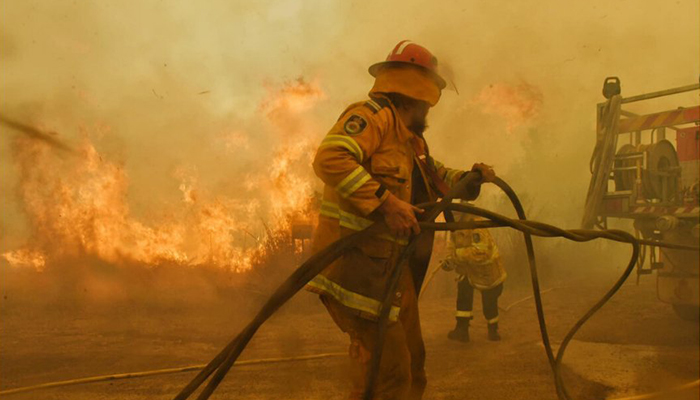
Catastrophic conditions: Australian firies, many of them unpaid volunteers, are working long hours and risking their lives to keep their communities safe. Picture credit: @NSWRFS/Twitter/Nick Moir.
Psychologists report that people are shocked by the widespread devastation, and their fear of the fires, concern about health impacts from smoke and distress about the vast amount of wildlife killed are all fuelling ‘eco-anxiety’ - worry and grief about our environmental crisis - in the wider population.
For the thousands of Australians evacuated from the path of the fires, the mental health impact is likely to be felt for many months to come, perhaps years.
“Living through dangerous events and traumas is a major risk factor for predicting post-traumatic stress disorder later on,” says Associate Professor Mel Taylor, who is a psychology lecturer at Macquarie University and a researcher at the Bushfire and Natural Hazards Cooperative Research Centre.
Associate Professor Taylor has researched the mental health impacts of fire-affected communities, in particular, the impact of animal deaths, for over five years.
Fear about the long-term prospects for the world has been likened to being at war, where there’s a creeping threat, and it engenders a siege mentality.
She says that people affected by fires can be divided into three groups: emergency workers and first responders, people evacuated to safety who may have experienced direct loss, and those watching on - often also affected by smoke and changed plans – who can experience strong emotional responses to the tragedy.
People from any of these categories may be at higher risk of eco-anxiety, as well as grief, depression and other mental health issues, including vicarious trauma through exposure to rolling media coverage of events and the accounts of those affected.
Wildlife loss a trigger for eco-anxiety
While some first responders are resilient, and many are given extensive support, Associate Professor Taylor says that there’s growing signs that less obvious groups such as wildlife carers are at risk of trauma and anxiety.
“Wildlife carers are often part of very small groups or are even individuals who are doing this work outside formal organisational structures, and they are now overwhelmed with suffering animals and they are in a caring role. They can also be under threat of bushfires themselves,” she says.
“It’s very emotionally taxing for those dealing with severely injured and very traumatised animals. These groups run on a shoestring normally and don’t have the formal support networks or employee assistance programs that organisations like the Rural Fire Service and Red Cross can tap into,” she says.
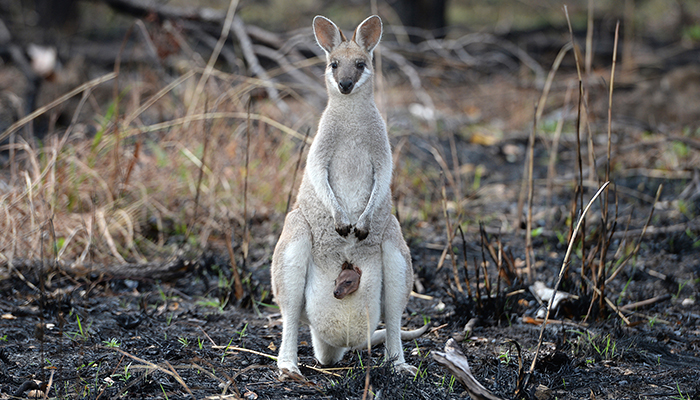
Threat to native wildlife: Millions of animals have been killed in Australia's months-long bushfire crisis, with the figure set to rise, according to officials.
Beyond those in the line of fire and dealing with the fallout, people around the world are expressing their grief, empathy and distress at images of burned and suffering animals, and the extraordinary estimates of wildlife losses approaching a billion animals in NSW alone.
“Fear about the long-term prospects for the world has been likened to being at war, where there’s a creeping threat, and it engenders a siege mentality,” says Associate Professor Taylor.
This can trigger psychological defence mechanisms, she says.
“People can develop a sense of helplessness; the adrenaline from their fear and perceived lack of ability to change the trajectory can result in maladaptive responses, like denial and wishful thinking, anger and fatalism.”
Eco-anxiety becoming more common
“The growth of eco-anxiety and other strong feelings about threats to our natural environment is a relatively new phenomenon, and there’s no formal psychological diagnosis of this as a clinical disorder,” says Dr Ella Oar, who is a postdoctoral research fellow in Macquarie University’s Centre for Emotional Health.
- The 2010s: a decade of disrupters
- Just how dangerous is bushfire smoke to your health?
- Polar ice is melting faster than we thought, researchers find
However, she says, eco-anxiety has been recognised as a mental health issue by a number of researchers. It’s likely that eco-anxiety is becoming more common. Extensive media reports around the bushfire crisis and the continuing presence of smoke in major centres in Australia could exacerbate it, she adds.
“We don’t have figures about the prevalence of these kinds of feelings, but anecdotally, clinicians are reporting an increased number of people reporting these concerns,” she says.
A 2017 report by the American Psychological Society on the impact of climate change on mental health defines eco-anxiety as “a chronic fear of environmental doom,” and cites evidence of people who are “deeply affected by feelings of loss, helplessness, and frustration due to their inability to feel like they are making a difference in stopping climate change.”
“People can experience anxiety or grief around an environmental crisis at levels that are very distressing and can interfere with their lives.
Dr Oar says that the rising incidence of climate activism, with over 300,000 people attending Australian school strikes in September, shows increasing levels of strong concern about climate change in the community. “The bushfire crisis has brought climate concerns to the forefront of our attention,” she says.
Some anxiety is helpful
Dr Oar says it’s important to realise that eco-anxiety is not unfounded, as there is substantial evidence supporting the harmful impacts of climate change.
“It is very normal to experience anxiety when we're faced with a threat, and some anxiety is helpful, and it's adaptive,” she says.
“If we don't feel anxious, we don't change our behaviour. But really high levels of anxiety can become overwhelming and even paralysing.”
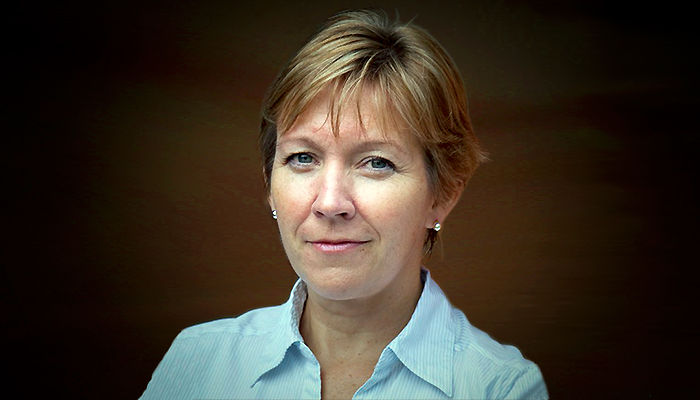
Exposure to events: People watching on from smoke-shrouded cities can be as affected as those on the frontline fighting the fires and being evacuated to safety, says Taylor.
Feeling very fearful about climate change can cause people to avoid making changes or taking action, she says.
“When people are overwhelmed with anxiety, they don’t want to face the thing they're afraid of because it has become too big, and then that's when it's counter-productive,” she says.
“Perhaps they will give up on doing things that help protect the environment and think that the small changes they make, such as saving water, won’t have any impact.”
Raise funds for bushfire victims, join climate action groups or connect with like-minded people who can help support you.
She says that for a small group of people, their anxiety around environmental issues may interfere with their sleep or with their day-to-day living.
“If you’re so worried about what's happening in the world that you can’t concentrate on other things or it’s affecting your sleep, it’s time to consider getting some help.”
Addressing fear with action
One of the most effective ways to reduce anxiety, is to take action – no matter how small, says Dr Oar.
“Actions that have a social element can also be very helpful – such as raising funds for bushfire victims, joining climate action groups, or connecting with like-minded people who can help support you.”
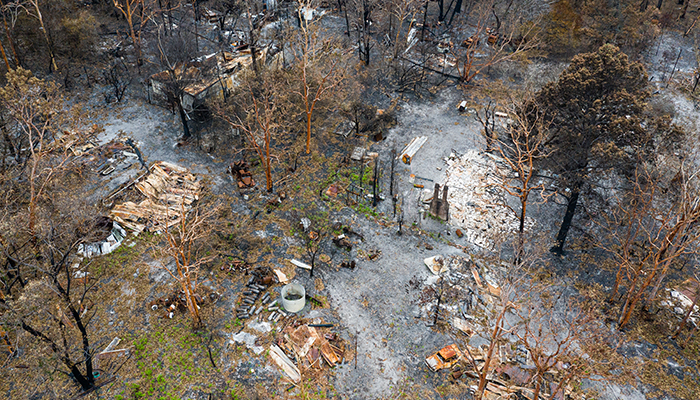
Trail of destruction: Almost 2,000 homes have been destroyed and hundreds more damaged in the fires.
She says it’s also important to avoid burnout by taking on too much.
“Break it down into smaller steps and focus on one behaviour that you're trying change, and then move on to the next one,” she says. Trying to do a whole lot of things at once can exacerbate feelings that you can’t get on top of things, she adds.
In situations like the bushfire crisis, it can be hard to switch off from the barrage of media reporting – and in many cases, it’s important to stay up to date.
- How museums can hook children for a lifetime of learning
- Could Australian wild rice be the key to feeding 11 billion people?
- Can we predict when a volcano will erupt?
Strategies to help manage this can include identifying one or two trusted sources of information – the ABC and ‘Fires Near Me’ app, for example; and to set limits to your exposure to news and to social media, so that you check at regular intervals, scheduling breaks in between.
“If anxiety persists, therapy or counselling can help people feel like they aren’t alone. They are able to voice their fears and put them in perspective, and come up with some strategies to deal with their anxiety,” Dr Oar says.
Online self-guided therapies such as Macquarie University’s Mindspot clinic can help, or the Cool Kids online program for children, Dr Oar says. She recommends consulting a psychologist if anxiety becomes overwhelming.
Dr Melanie Taylor is an Associate Professor in Organisational Psychology in the Department of Psychology. Dr Ella Oar is a Postdoctoral Research Fellow in the Department of Psychology and Centre for Emotional Health.



